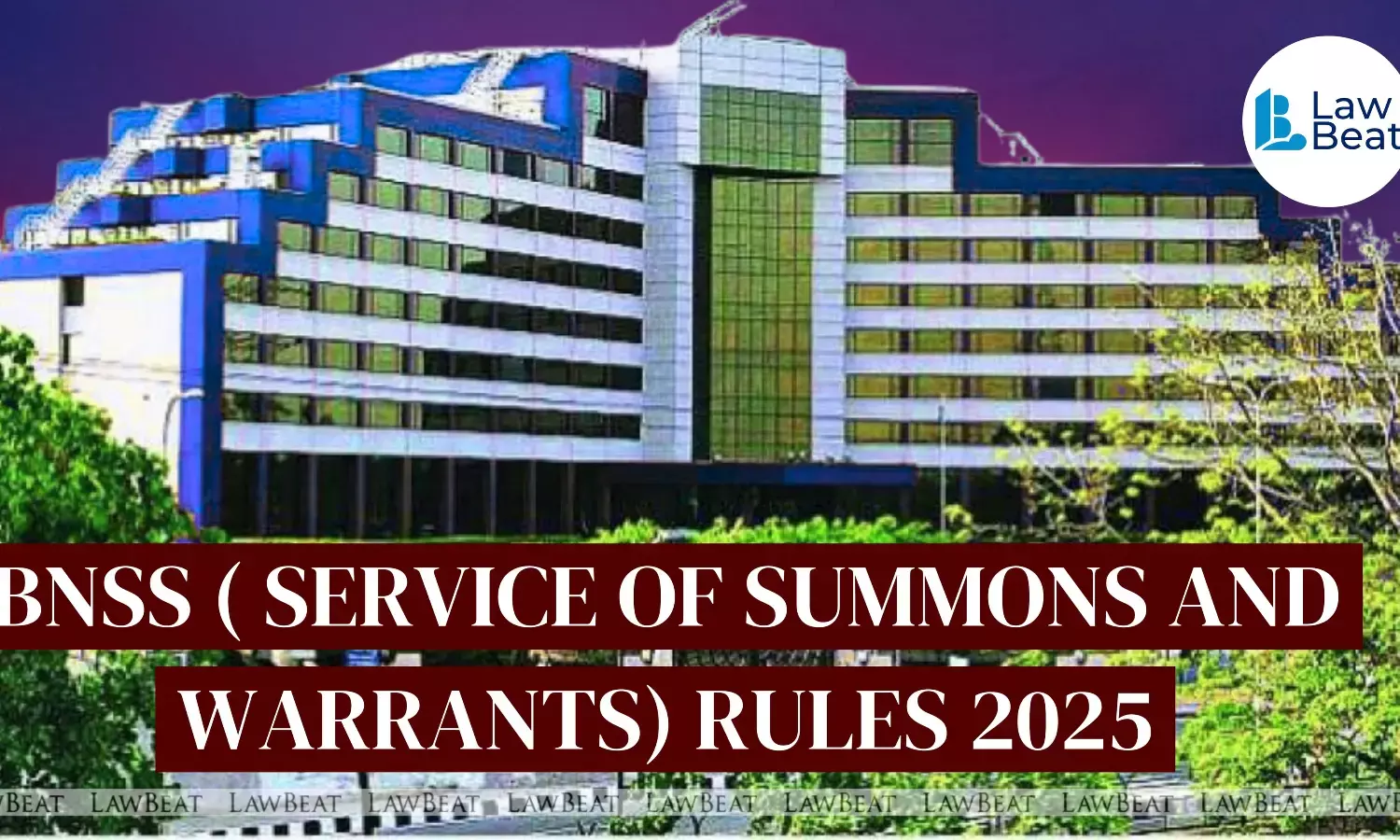Delhi Notifies BNSS Rules 2025: WhatsApp and Email Now Valid for Serving Court Summons and Warrants

On August 24, 2025, the Delhi Government notified the Bharatiya Nagarik Suraksha Sanhita (Service of Summons and Warrants) Rules, 2025, introducing a landmark reform that allows court summons and arrest warrants to be formally served through digital platforms such as WhatsApp and e-mail.
This move, approved by Lieutenant Governor V.K. Saxena, represents a legal and procedural advancement in the digitisation of criminal justice in the capital.
These rules fall under the broader framework of the BNSS, 2023, which replaced the Criminal Procedure Code in July 2024 and aimed to unify and modernize various facets of criminal law. With the 2025 Rules, Delhi operationalises core digital oriented provisions, most notably, electronic service of process.
Under the new regime, court-issued summons and warrants will be generated via the Case Information System, encrypted, and embedded with a digital court seal and the judge’s e-signature, specifying the judge's court and capacity. These documents will then be transmitted by police to recipients through verified WhatsApp numbers or email addresses.
Electronic service via these platforms will be considered legally valid, provided there is proof of transmission, such as a delivery tick on WhatsApp or an email delivery receipt, thus meeting the threshold for due service. This efficiency oriented step is intended to reduce reliance on manual, paper-intensive methods that often delay legal proceedings.
That said, the Rules maintain procedural fairness by allowing courts to fallback on physical delivery when electronic service fails or when accurate contact details are unavailable. Such a contingency preserves the integrity of service and ensures that electronic methods do not compromise an individual’s right to notice.
Moreover, the Rules mandate the establishment of Electronic Summons Delivery Centres at each police station.
These units are responsible for issuing electronic summons, tracking acknowledgments, and maintaining systematic records of service.
Police stations must also maintain registers, either electronic or physical, of individuals to be served under the BNSS, 2023. These registers are to be verified and uploaded to the Crime and Criminal Tracking Network System (CCTNS), with monthly reports shared with jurisdictional courts.
Privacy safeguards feature prominently in the new framework, especially for sensitive matters.
Cases involving women, juveniles, or offences under the Protection of Children from Sexual Offences (POCSO) Act require that victims' phone numbers and email addresses remain confidential and not be disclosed during service. This balance between transparency and victim protection is a key component of the revised process.
Officials emphasize that these changes will significantly reduce clerical burdens.
By shifting from physical to electronic methods, police resources previously tied up in administrative tasks can instead focus on investigations and core enforcement services.
Additionally, the improved record-keeping is expected to enhance accountability and minimize delays in court compliance.
This notification also aligns with broader national objectives. In a May 2025 review of BNSS implementation, Union Home Minister Amit Shah advocated for issuing e-summons directly from courts, thereby further accelerating judicial processes and improving coordination between courts and police.
The 2025 Rules not only bring technological clarity but also reflect a legal commitment to efficiency, fairness, and privacy. Courts now have a clear, rule-based mechanism for dispatching summons using digital platforms, a progression from the ad hoc electronic practices adopted during the pandemic.
Implementation will require judicial vigilance. Courts must verify the adequacy of electronic service to prevent ex parte proceedings based on failed service. Similarly, ongoing monitoring of infrastructure, particularly the readiness of delivery centres and reliability of electronic logs, will be essential to maintaining legal standards.
Conclusively, the Delhi BNSS (Service of Summons and Warrants) Rules, 2025, stand as a precise and forward-looking reform.
They harmonize efficiency with legal rigor by embedding WhatsApp and email as formal service tools while preserving fallback measures and emphasizing procedural documentation and privacy.
